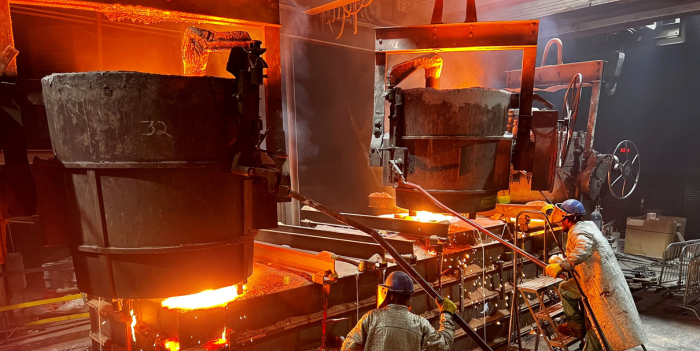
The Next Great M&A Run
The impacts of the slowdown in M&A during 2020 and 2021, combined with the levels of capital on the sideline, will set up the next great run in M&A. We believe starting in 2022 and continuing for at least 5 years, we will see an unprecedented growth in M&A. This growth will be driven by private equity more than any prior M&A market. The private equity sector will be well capitalized, supported by a strong financing market and in need to place money. Private equity will be met with a pent-up level of supply from sellers who held off during the 2020 and 2021 years due to the recession and pandemic. This confluence of factors will set up market dynamics which will result in one of the greatest M&A markets in the history of the U.S.
When this run is at its peak, we expect private equity to represent close to 50 percent of the overall M&A market, a dramatic increase from its current levels. The five-year run up after the Great Recession resulted in an increase of 157 percent for private equity deals from its lows of 2009. We expect the increase from the lows of 2021 to eclipse the 157 percent growth rate set during the post Great Recession expansion as more capital is flowing into private equity than at any time in history. Additionally, private equity investing, and the commensurate returns will become more available to investors. The expansion in both the number and type of funds has opened the door for many qualified investors to place money into private equity deals.
The middle-market M&A market has grown more dependent on private equity during the last 10 years. While there are many different estimates of just how big of a player private equity is in M&A, most reports suggest approximately 39 percent of all global deals are private equity backed deals. If you are active in the M&A market, considering a sale of your business, or considering M&A activity, it is critical to understand how the competing forces impacting private equity will influence your deal as there are many factors which will influence the activity of private equity. One of the key drivers of the private equity participation is the availability and pricing of both debt and equity capital. While pricing will continue to fluctuate, we focus more on the availability of capital as the basis of our views expressed in this report.
Debt Markets Offering Some Limitations for Private Equity
The COVID-19 pandemic has clearly shaken the debt markets and caused a pull-back in the overall availability of capital. The data is still erratic due to the significant changes in the market and the aggressive economic fallout resulting from COVID-19. That said, commercial banks and other financing sources have become much more conservative in their lending guidelines. This change has caused difficulty in financing some deals. More importantly, even for those deals that can be financed, the lower level of debt has resulted in reduced valuation multiples for deals. Much of this is dependent on industry as well as underlying company specific factors. For many deals, the complication with financing has led to a reduction in overall valuation in the 10 to 25 percent range. As the pandemic plays out in the coming months, it will have an impact on the financing sources which will play a major role in just how fast private equity regains its pre-pandemic footing. There are many uncertainties in the current market to really predict the duration of this pull-back by financing sources. We anticipate that it will go through the end of 2020 and into the early part of 2021.
Availability of Equity at an All Time High
On a more positive note, the equity capital available to private equity has never been better. Global private equity funds had $1.25 trillion of uninvested capital which has been raised and yet to be invested at the end of 2019. This capital typically has a 5 to 7-year time horizon to invest the capital which has been raised. To put this in perspective, 5 years prior to this (the end of 2014), private equity had $725 billion of uninvested capital. The equity capital available to private equity has increased 72 percent in just 5 years. This has led to a continued growth of private equity deals in the M&A market. As a percentage of the overall market in 2019, private equity deals comprised approximately 39 percent of all M&A deals. That is up from 28.3 percent in 2014. This is a trend that is sure to continue as more capital has been raised and is going to be invested. The record level of capital raised by private equity is sure to bring a growing demand for deals, it is just a matter of timing.
Recession Impact on Private Equity
The U.S. entered a recession in February of 2020. The length of the recession and the ongoing impact of COVID-19 is uncertain. Looking at the Great Recession (2007-2009) and its impact on private equity could provide some insight into how this might play out. From the highs in 2007 to the low point in 2009, private equity deals fell 44 percent. That decline in deal volume was in line with the overall market drop in M&A activity (i.e. it wasn’t just private equity which dropped during the last recession). If we see this type of drop during this recession, we will have a drop from the peak of private equity activity in the U.S. of 5,190 deals to an approximate annual level of 2,600 deals in 2020 or 2021. The level of this decline, combined with the pent-up capital to invest and ongoing capital raising efforts by private equity, would further enhance the level of demand for M&A deals.
Limited Supply of Quality Deals Will Add to the Length of the Slow Down
Based on the performance of the M&A market during previous recessions and the current limitations in the financing market, we believe that M&A will continue to be choppy for the remainder of 2020. Going into 2021, we believe that the market will remain choppy early in the year. More importantly, we believe that there will not be as many quality opportunities in M&A due to these factors as we expect a significant reduction in the supply of deals. Many sellers will delay their sale process until we are past the recession and the uncertainty associated with the pandemic. This is especially true for owners of quality businesses who are not under pressure to sell. Many will wait until the prospect of a strong sale process is clearer. We believe that clarity will not be available until the 3rd or 4th quarter of 2021. For that reason, we believe 2021 will be a down year for M&A volume. That said, quality deals that come to market in 2021 will be met with a strong interest from private equity.
To read more about private equity, click on the link to our Q1 2020 Middle Market Private Equity Update.
Related Professionals
Get in Touch
Tell us a little about yourself and we will get in touch as soon as we can.

 Back to news articles
Back to news articles



